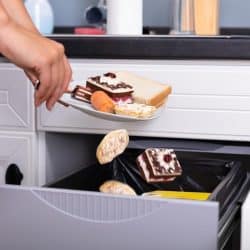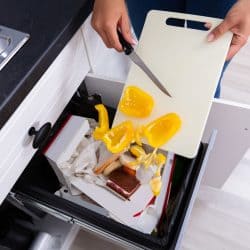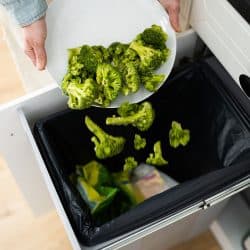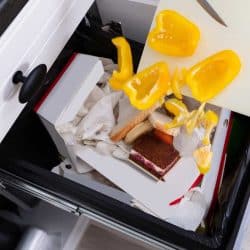Are you looking for a better way to manage your kitchen waste? Garbage disposals and trash compactors are popular in-home options. They have similar uses but rely on different methods for waste management. We have done the research and have all the information you'll need to decide which is right for you.
The best waste disposal tool for you will depend on a few factors. You should consider the price, amount of waste you produce, and lifestyle.
Garbage disposals are great for those with small amounts of mostly food waste. Trash compactors are better for those who regularly output a lot of kitchen waste.
There are so many more things to consider when deciding between these options. Some locations do not allow garbage disposals at all. While trash compactors are often allowed, they may be too noisy. To determine what would work best for you, keep reading to dive deeper into these waste management tools.
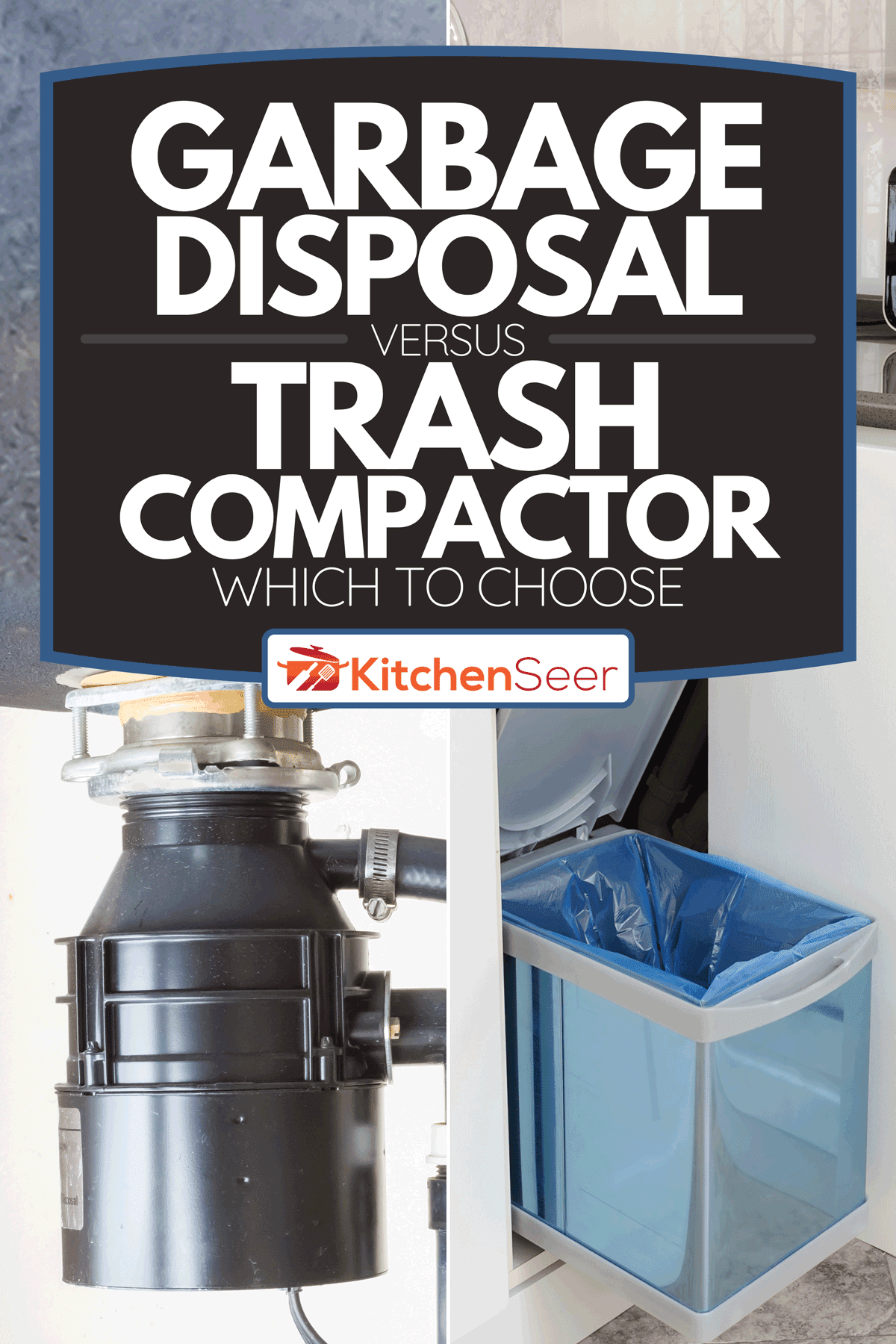
Garbage Disposals
Garbage disposals are the more affordable option ranging from anywhere between $50 and $400. Keep in mind that you will also need to pay for installation. You can install a garbage disposal on your own, but you should hire a plumber if you do not have experience.
How do garbage disposals work?
Garbage disposals are installed under the drain of your sink to collect and dispose of food waste. The food stays in the disposal unit until you flip the switch and activate a spinning plate. That plate grinds the food until it can be washed away.
This option for food waste disposal makes it, so you never have to interact with the food waste once it is off your dishes. This can be installed on any kitchen sink.
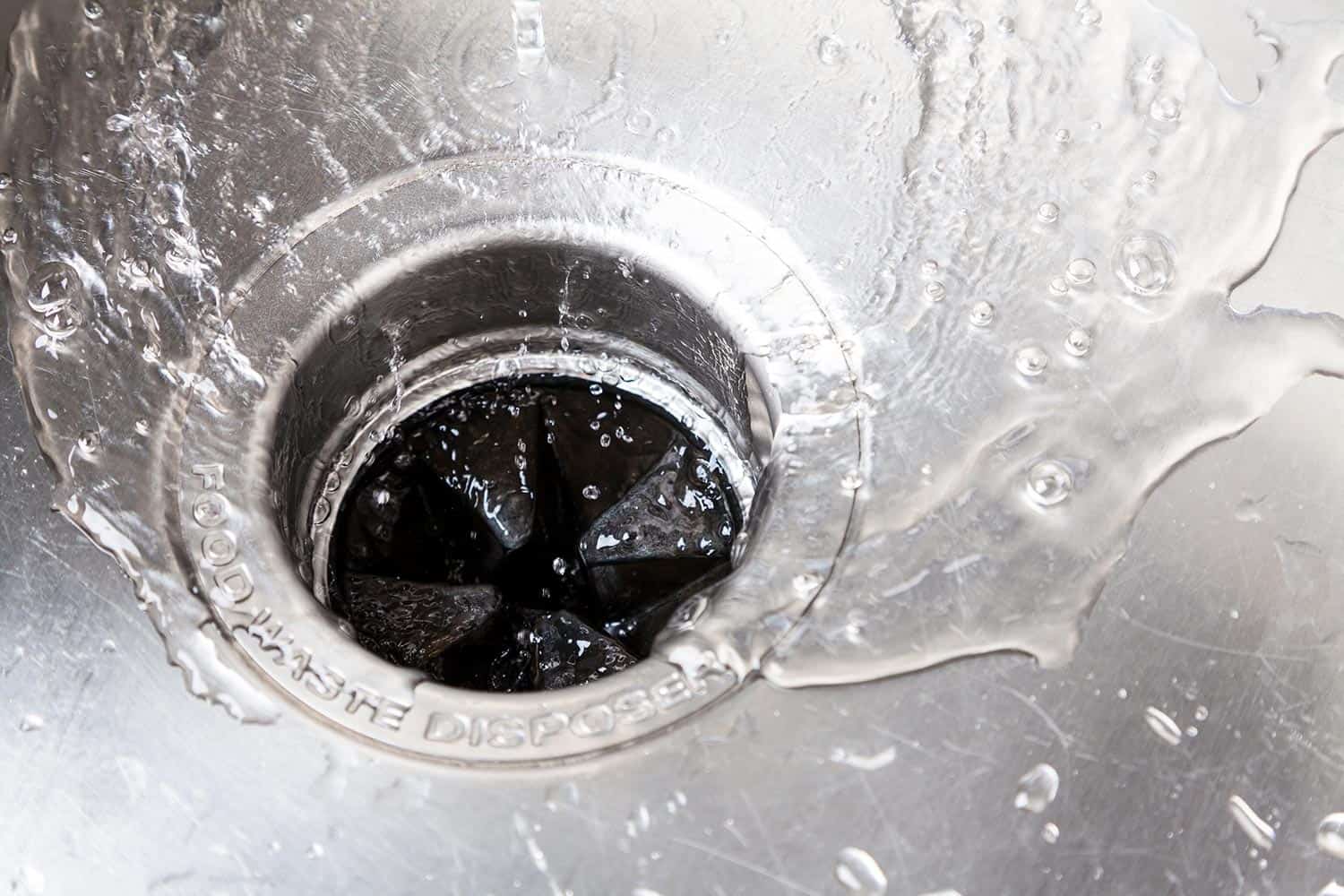
What should you not put in a garbage disposal?
Garbage disposals are meant to grind and dispose of organic food waste. Not all food waste meets the criteria for drain disposal. Fats, some vegetable peels, starchy foods, and other slow-decomposing foods should not be put into your garbage disposal.
Fats is an umbrella term including oils and greases. Oils are often solid at room temperature and can cause problems with drainage. Avoid vegetables with stringy peels like celery, corn husk, and asparagus.
Large amounts of starchy food can thicken during the grinding process and create a paste that can clog your garbage disposal. Lastly, foods that don't decompose quickly, like eggshells and coffee grounds, can clog your garbage disposal.
How long do garbage disposals last?
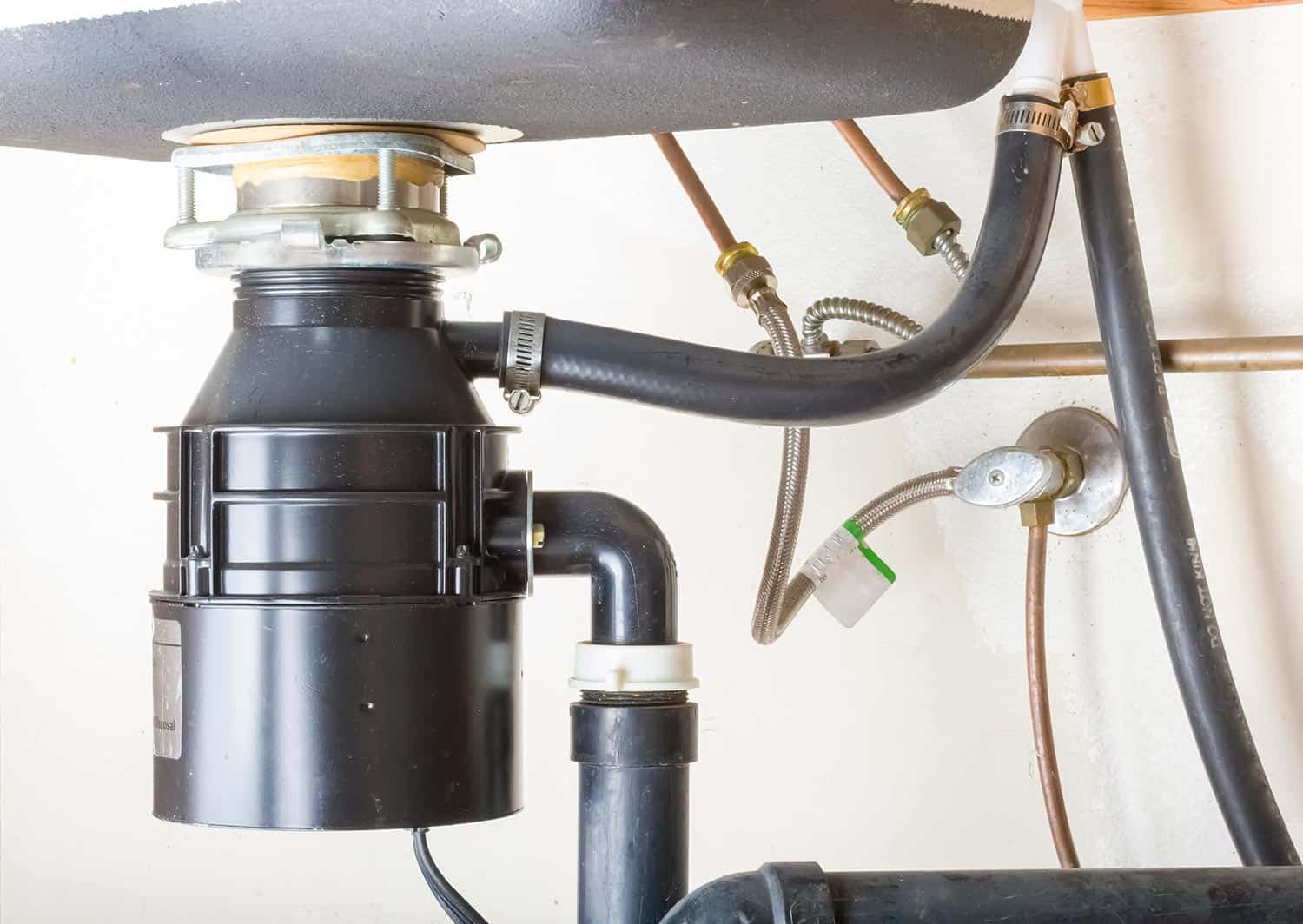
Garbage disposals should last for up to 12 years with proper use and maintenance. Proper use does not only include the items put into the machine.
You should run the water while using the garbage disposal and up to 30 seconds after it stops. Also, waste should be disposed of in small amounts at a time. Being mindful about what and how much waste is being ground down will extend its working life.
Are garbage disposals bad for pipes?
Garbage disposals themselves are not bad for pipes. They can, however, lead to pipe problems if misused.
Inorganic material, fats, or foods that do not break down can cause clogs if put into the garbage disposal. These clogs are what causes damage to pipes. An uncleared blockage can cause pipes to burst or restrict water flow completely.
Trash Compactors
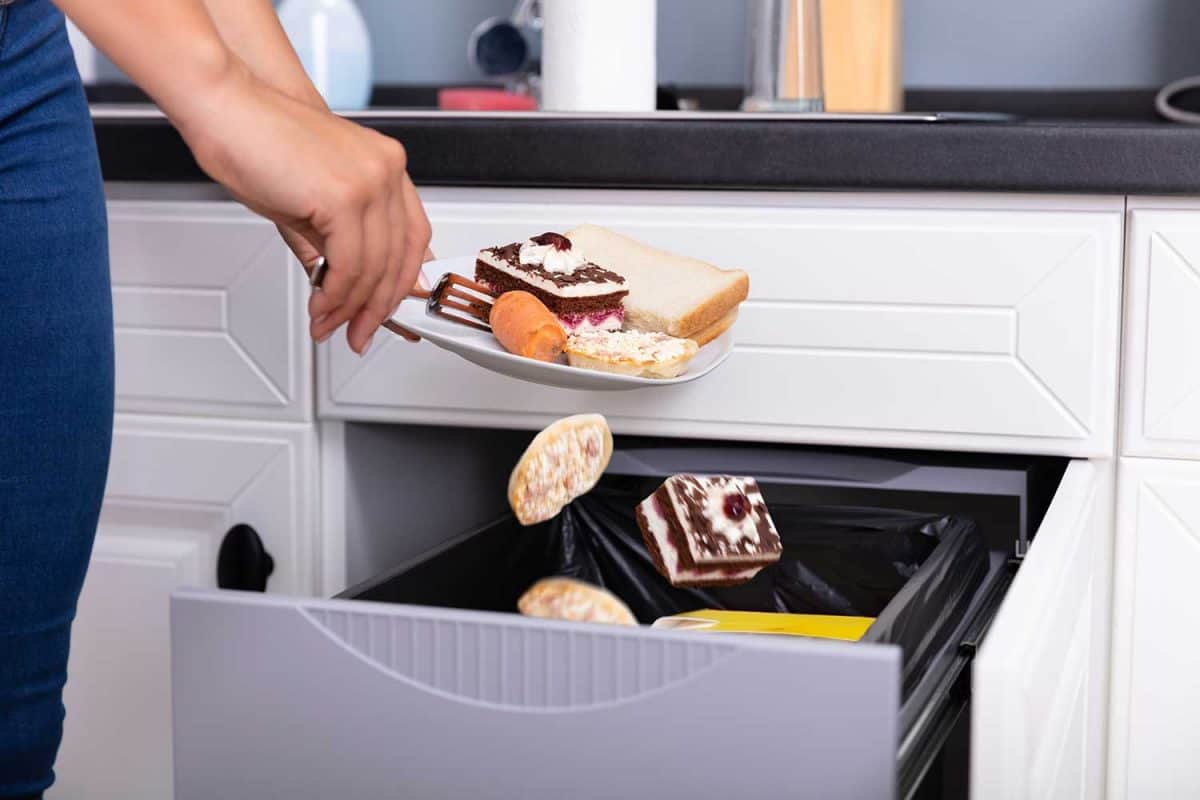
Next, trash compactors are the more expensive option. These can be stand-alone or installed under your kitchen counter. Stand-alone units can range from $400 to over $1,000. Installation can be up to $1500.
How do trash compactors work?
Trash compactors are used purely to reduce the volume of your waste. Once activated, the compactor uses a metal ram to crush the garbage.
These compactors are like in-home garbage trucks. They reduce the volume of your waste; however, you will still need to dispose of the waste yourself. Unlike garbage disposals, trash compactors are not just limited to food waste.
What should you not put in a trash compactor?
Trash compactors do not actively dispose of your waste. That means fewer restrictions on what you can put into it.
Avoid things like oils, wood, chemicals, and electronic items. Anything flammable or containing acid should not be compacted. Other than that, regular kitchen waste, including recyclables, can be compacted.
Do trash compactors need special bags?
Yes, trash compactors do need special bags. They are very similar to regular trash bags, but the trash compactor bags are stronger. Regular trash bags will break under the pressure of the compactor.
Compactor bags are available in paper and plastic varieties. Plastic is great for everyday kitchen waste that may have drippings. Paper bags are an excellent choice for recyclables or waste that will be composted. For more information on compactor bags, check out our article, Do Trash Compactors Need Special Bags?
These bags are more durable, but they are not impenetrable. There is a chance that something rigid can puncture the bag during compression. You can decrease the chances of that happening by placing rigid items like aluminum cans in the center of the compactor.
How long do trash compactors last?
Trash compactors last about 7 to 12 years for regular home kitchen use. The quality of your compactor will play a role in how long it lasts. Proper usage and routine maintenance will extend its working life, no matter the quality.
Maintenance includes things like cleaning and greasing components. For maintenance tips and more, read our article, How Long Does a Trash Compactors Last?
Pros and Cons
Both of these machines are useful in disposing of or minimizing waste. However, they both have some things about them that can make them undesirable. It is helpful to make your decision based on how much the cons will impact your daily life.
Garbage Disposal
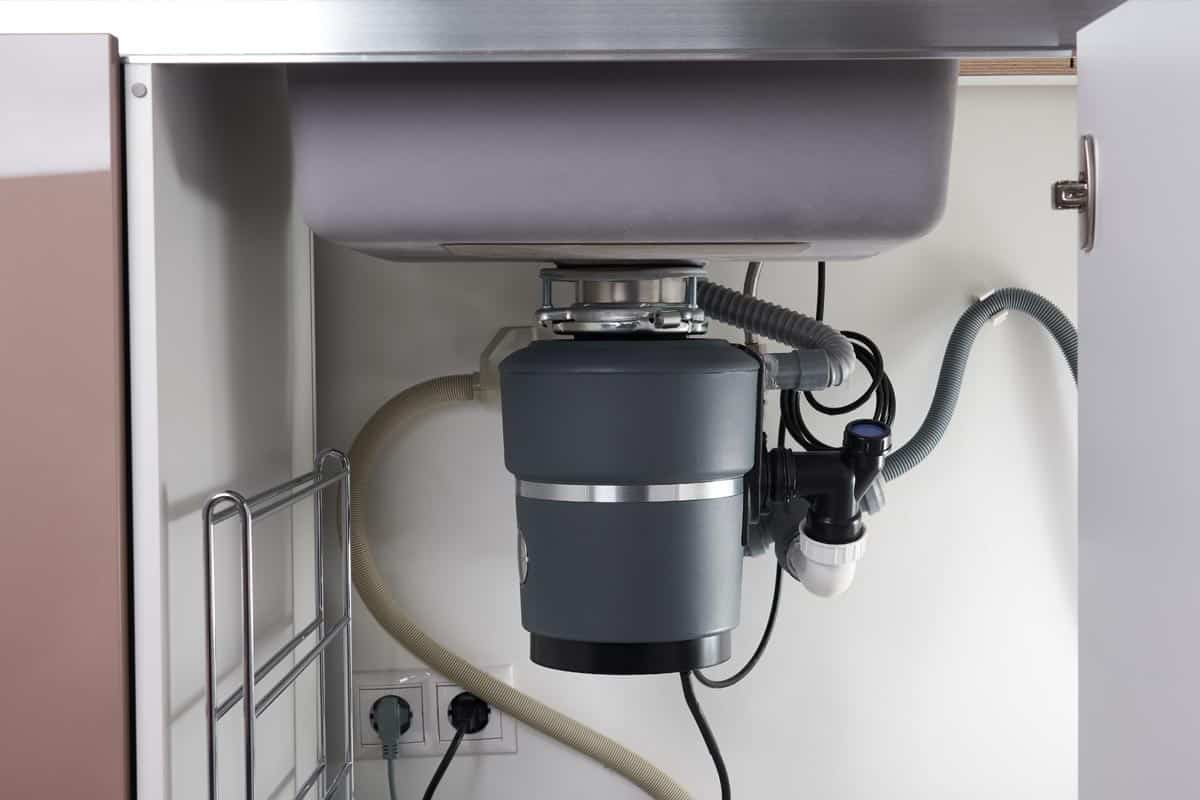
Firstly, garbage disposals are great because you do not have to physically interact with them other than dropping waste into the sink. Garbage disposals immediately remove waste from your kitchen, which reduces smells. To top it off, garbage disposals are cheaper in the long run.
Another benefit is that they do not take up extra room in your kitchen. Garbage disposals stay out of sight underneath your sink.
On the other hand, garbage disposals are only made for food waste. You cannot use it for inorganic material or even certain foods. Even with proper use, there can still be clogs every once in a while. Some models can also be loud or cause vibrations throughout the sink.
One final thing to note about garbage disposals is that they are not approved for use in all locations. They are banned in many European countries and were even banned in New York City for a while. Today in NYC, they are legal, but many apartment buildings still prohibit them. This is due primarily to the effects it has on the sewer system.
Trash Compactor
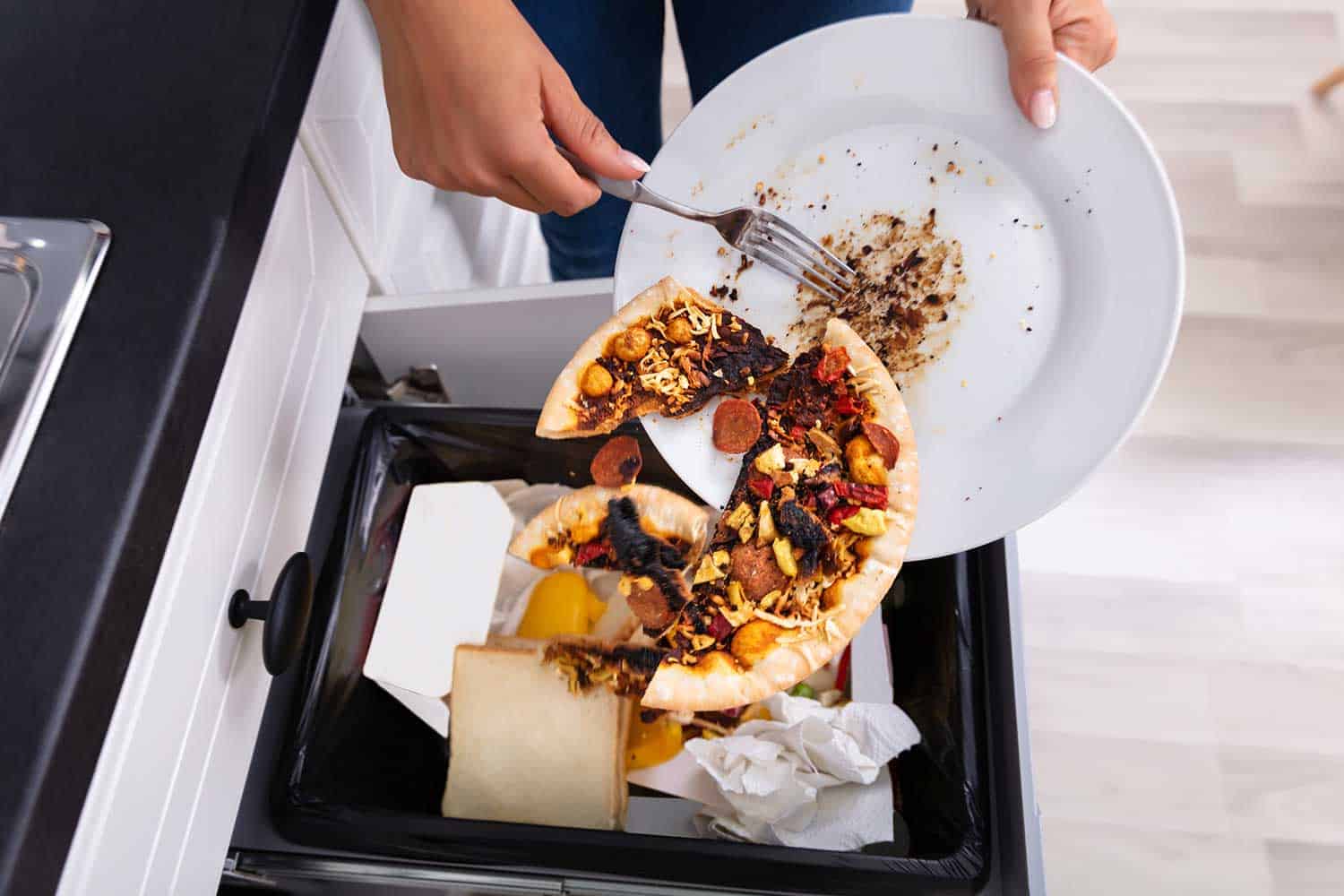
Trash compactors are great because they can handle all kinds of waste, not just food. They compact waste so that it will take up less space in your home as well as in landfills. That allows you to have to take out trash less often.
Trash compactors come in various sizes but can be as small as your kitchen trash can. Compactors that size will maximize space while minimizing the volume of your trash.
One major downside of compactors is that they do not actually dispose of the waste. You will need to empty the compactor bag and dispose of it yourself. Also, although the waste is more compact, it will still leave a smell.
Trash compactors are expensive, but there are more affordable options. There are manual trash compactors available for as little as $150. These come with the advantage of compacting trash for cheaper but the disadvantage of manual labor.
In conclusion: Which should you choose?
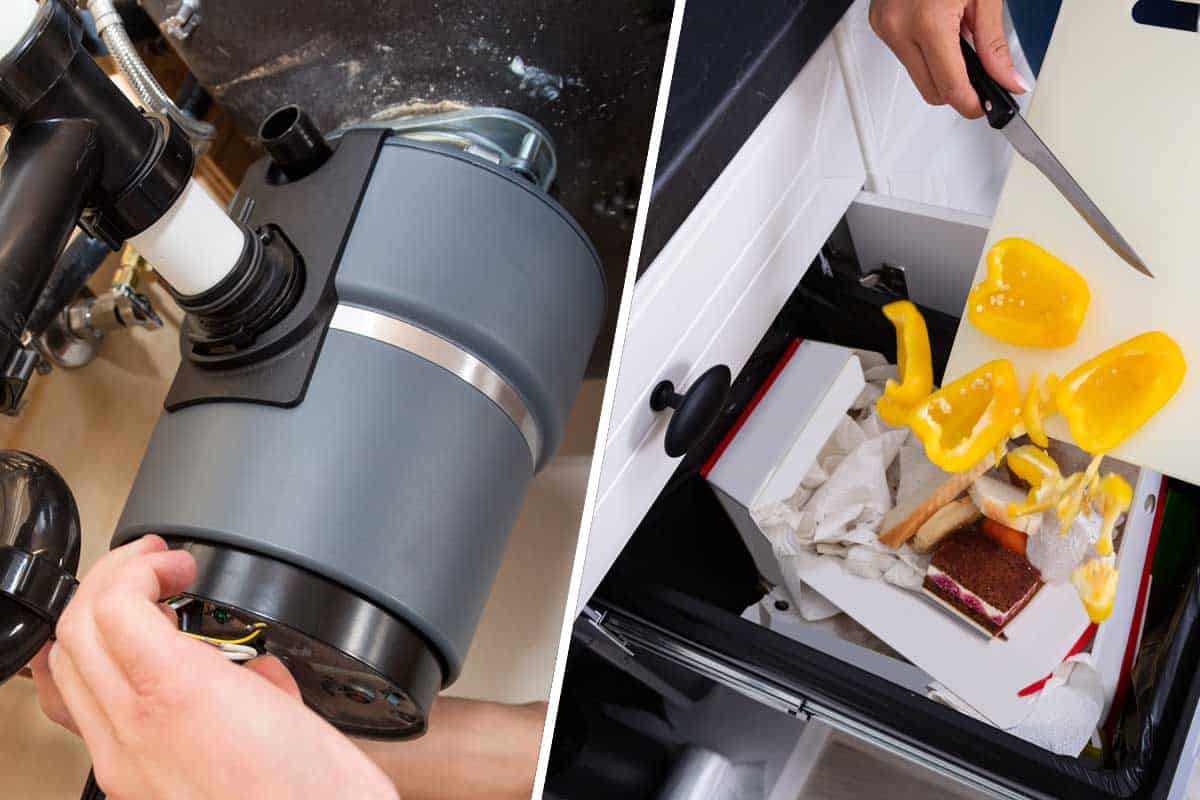
In the end, your lifestyle will determine the best option for you. If you have more food waste than anything else, garbage disposals are an excellent option. With less smelly food waste, you can empty the trash less frequently. Garbage disposals are less expensive and can cut down the amount of trash bags you use.
If you have a lot of waste outside of food waste, then a trash compactor will be the better choice. It can take just about any waste and will also save space usually taken by trash bags. Trash compactors are, however, a more considerable investment.

![A woman throwing away sliced peppers in to the trash compactor, Do Trash Compactors Need Special Bags? [And How To Measure For Them]](https://kitchenseer.com/wp-content/uploads/2021/08/A-woman-throwing-away-sliced-peppers-in-to-the-trash-compactor-1-250x250.jpg)

